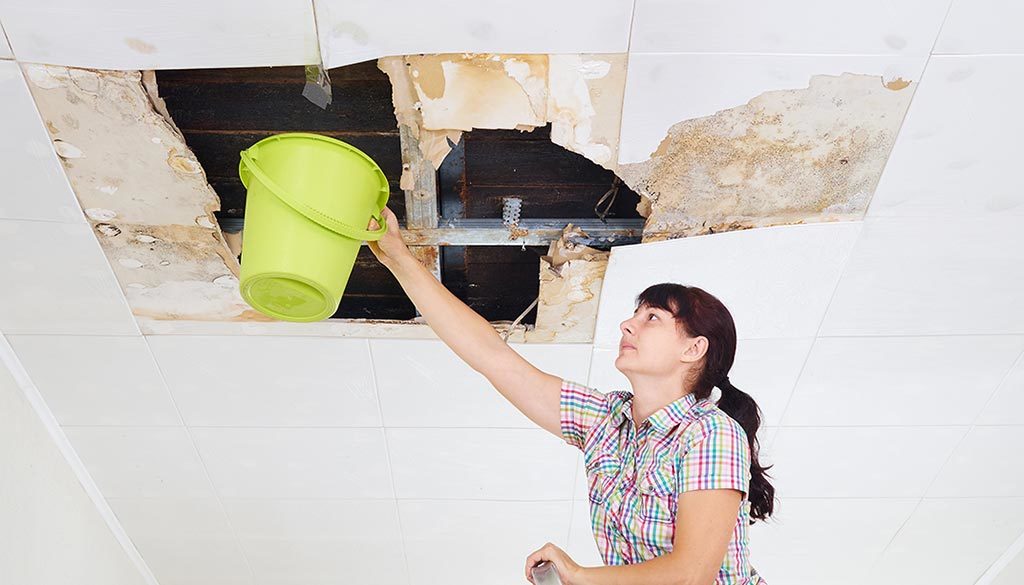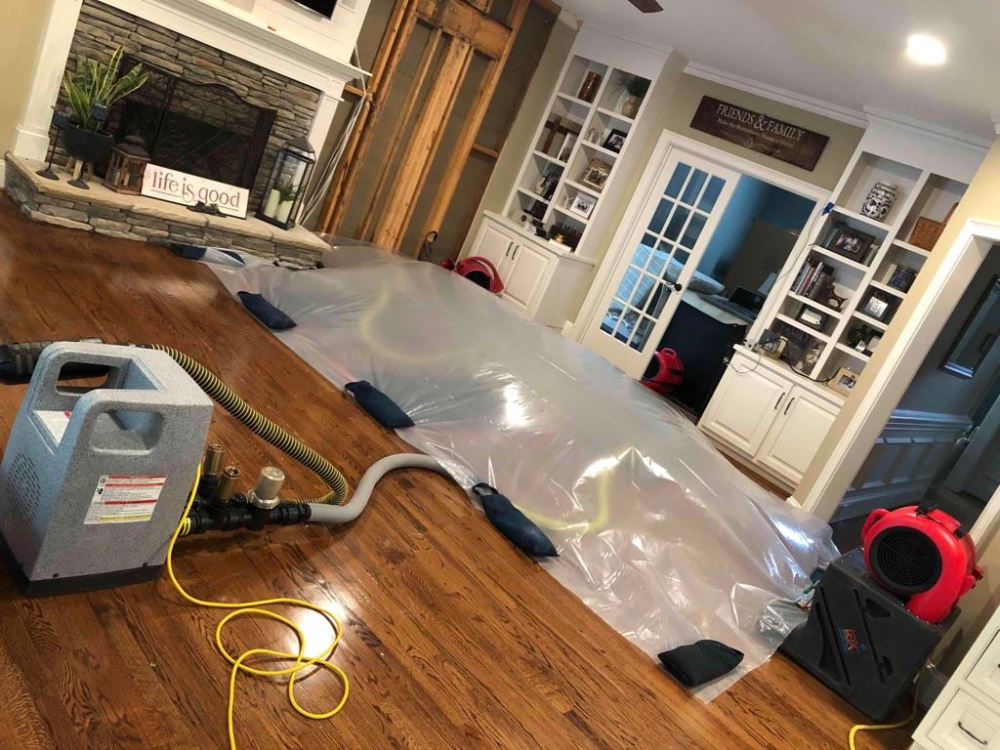Top criteria to evaluate when hiring Water Damage Restoration specialists
Wiki Article
Water Damage Restoration 101: Comprehending the Process and Cost
Water damage can strike unexpectedly, leaving property owners in a state of complication. Comprehending the reconstruction procedure is crucial for efficient recovery. From assessing the damage to choosing the best provider, each step influences the general result and expense. Elements such as the kind of water damage and urgency likewise play a considerable duty. What are the details methods utilized in repair, and just how can one plan for prospective expenditures?Kinds Of Water Damage

First Evaluation and Examination

Water Removal Strategies
Following the first assessment, efficient water extraction methods are used to alleviate damage and stop additional problems. These methods include making use of customized equipment such as industrial-grade vacuum cleaners and completely submersible pumps - Water Damage Restoration. The choice of technique relies on the quantity of water existing and the sort of products influenced. For standing water, submersible pumps are commonly utilized for fast elimination, while vacuum cleaners are ideal for extracting water from carpetings and upholstery. Furthermore, advanced methods like water extraction floor coverings may be utilized for hard-to-reach areas - Water Damage Restoration. The objective is to remove as much water as feasible, lessening the possibility for mold and mildew development and architectural damage. Prompt and efficient water extraction is crucial in the total water damage restoration procedureDrying and Dehumidification Process
As soon as the water removal is total, the drying and dehumidification process ends up being crucial to recovering the afflicted area. This stage usually employs industrial-grade dehumidifiers and air movers to effectively lower dampness levels. The dehumidifiers attract wet air, getting rid of excess humidity, while air moving companies circulate air to speed up evaporation. Monitoring tools is often made use of to track humidity and temperature levels, ensuring excellent drying conditions. The period of this procedure can vary depending on the degree of the water damage and ecological variables. It is vital to extensively dry all affected products, consisting of walls, flooring, and home furnishings, to stop mold and mildew growth and structural damage. Correct execution of this action is essential for a successful restoration outcome.Cleaning Up and Sterilizing Damaged Locations
A complete preliminary evaluation and assessment of influenced locations is essential to recognize contamination levels as soon as the drying out process is complete. Water Damage Restoration. Efficient cleansing strategies and suitable products should then be employed to get rid of particles and stains. Finally, sanitization and sanitation techniques are important to ensure that unsafe virus are eliminated, restoring the room to a risk-free conditionPreliminary Analysis and Examination
Before beginning any type of repair efforts, a detailed initial assessment and inspection of the affected locations are crucial for effective cleaning and sanitizing. This procedure involves identifying the level of water damage, identifying the resource of the water breach, and reviewing the materials influenced. Assessors usually seek indicators of mold development, structural stability problems, and damaged items. The assessment also includes examining dampness degrees making use of customized devices to guarantee no concealed water pockets stay, as these can lead to more complications. Documenting the findings is crucial for planning the next steps in the restoration process. A thorough first assessment allows remediation specialists to devise a targeted technique for reliable cleansing and sterilizing, eventually lessening damage and health threats.Cleansing Techniques and Products
Efficient cleansing and sterilizing of water-damaged areas need a range of products and techniques tailored to the details products affected. For porous surface areas like drywall and carpeting, extraction techniques are necessary to get rid of excess dampness, adhered to by deep cleansing with specialized detergents. Non-porous products such as floor tile or metal can be cleaned up using commercial-grade cleaners that efficiently eliminate impurities. Vapor cleaning is an additional effective strategy, especially for rugs and upholstery, as it makes use of high temperatures to get rid of microorganisms and mold and mildew (Water Damage Restoration). In addition, environmentally friendly items are significantly popular for their safety and security and efficiency - Water Damage Restoration. Inevitably, selecting the proper cleansing techniques and products not just ensures instant cleanliness but also help in protecting against additional damage and health risks connected with water breachSanitization and Disinfection Methods
When addressing water damage, proper sanitization and disinfection methods are vital to assure the safety and security and health of the affected atmosphere. After preliminary cleansing, surfaces need to be treated with proper anti-bacterials to eliminate microorganisms, mold, and bacteria that flourish in moist problems. Usual techniques include making use of EPA-approved chemical disinfectants, which can be used through spraying or cleaning techniques. Furthermore, ultraviolet (UV) light systems can successfully sanitize locations by counteracting microorganisms without severe chemicals. The choice of technique frequently depends on the sort of materials affected and the degree of contamination. Ultimately, extensive sanitization not only brings back a risk-free home however likewise aids prevent future wellness threats connected with sticking around dampness and mold and mildew growth.
Repair Work and Restoration Options
Reviewing the damage brought on by water direct exposure is important for establishing the proper repair work and reconstruction options. House owners might face numerous concerns, consisting of damaged drywall, warped flooring, and compromised structural components. Relying on the extent of the damage, fixings may include changing sections of drywall, installing brand-new floor covering, or enhancing architectural beam of lights. In situations of extreme damage, complete substitute of affected materials could be essential. Additionally, specialist restorers typically suggest using wetness meters to evaluate surprise moisture degrees before selecting the best strategy. It is important to act immediately to stop mold and mildew growth and additional damage. Picking the ideal alternatives not here just brings back the residential property however likewise guarantees long-term safety and capability.Factors Influencing Restoration Expenses

The level of water damage directly impacts the repair costs home owners can expect to incur. Elements such as the resource of the water, the duration of exposure, and the affected materials greatly influence rates. For example, tidy water damage from a broken pipeline is normally much less costly to recover contrasted to damage brought on by sewage. Additionally, the level of contamination dictates the need for specialized cleansing and disposal services, better raising expenses. Geographic place likewise plays a duty, as regional labor prices and schedule of repair solutions can vary. The urgency of the reaction influences costs; quicker interventions generally lead to lower overall expenses by preventing additional damage. Understanding these factors is crucial for house owners when estimating remediation expenses.
The three primary kinds of water damage are categorized based on contamination levels: clean water, grey water, and black water. A comprehensive first assessment and examination are crucial actions in the water damage restoration procedure. For standing water, completely submersible pumps are usually utilized for quick elimination, while vacuums are excellent for extracting water from rugs and furniture. The level of water damage straight influences the reconstruction costs homeowners can anticipate to incur. Clean water damage from a damaged pipeline is usually much less pricey to restore compared to damage triggered by sewage.
Report this wiki page